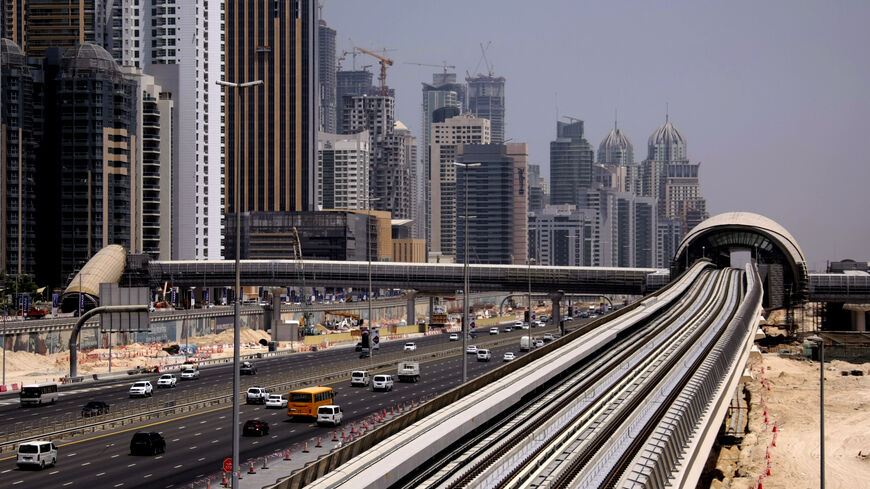DUBAI — The United Arab Emirates officially launched its transnational freight train network on Thursday, a project expected to contribute $54.46 billion to the country’s economy over the next 50 years.
It will link all seven emirates via one main railway extending 900 kilometers (560 miles) to connect four major ports and facilitate better transportation of goods across the country, according to the UAE government news agency, WAM.
Sheikh Mohammed bin Rashid Al Maktoum, the UAE prime minister and ruler of Dubai, inaugurated the network at the main control and maintenance center in Abu Dhabi’s Al Fayah region.
23-02-2023... One day... Seven emirates... A distinguished date... The official launch of the UAE’s National Rail Network, signaling the start of operations for freight trains, according to the schedule and budget specified. pic.twitter.com/Yn2XdWeCmM
— Etihad Rail (@Etihad_Rail) February 24, 2023
Stage one of the rail network was completed and operational in January 2016. Since then, it has been transporting about 22,000 tons of granulated sulfur each day from Habshan and Shah to Ruwais, on behalf of the Abu Dhabi National Oil Company.
Stage two began in 2020, and now connects the extreme western border with Saudi Arabia in the Abu Dhabi region of Ghuweifat, to the areas of KIZAD, Khalifa Port, Jebel Ali Port, Dubai, Sharjah, Ras al-Khaimah and the UAE’s east coast emirate of Fujairah.
The cross-country network includes a fleet of 38 locomotives and 1,000 multipurpose vehicles with the capacity to carry 60 million tons of goods annually. These industrial goods include petrochemicals, raw steel, limestone, aluminum, cement, industrial and domestic waste and food commodities.
Each locomotive is propelled by 4,500 horsepower engines or 3,400 kilowatts, and will run at speeds of up to 120 kilometers (75 miles) per hour.
Although a traditional means of transportation, the railway falls in line with the UAE’s sustainability goals by reducing carbon emissions in the road transportation sector by 21% and reducing overall road transportation emissions per capita by 40% by 2050, according to WAM.
In that timeframe, the railway is expected to save the UAE over $2 billion in road and maintenance costs in addition to enhancing tourism revenue by about $6 billion.
The trains are said to be particularly designed to endure the geographical stresses of the desert region including high temperatures and low humidity while maintaining their performance, efficiency and sustainability.
Looking ahead, the national rail network is also looking to expand.
Etihad Rail and Oman Rail announced a partnership with the UAE sovereign wealth fund Mubadala on Tuesday to build a 303-kilometer (188-mile) rail network worth more than $3 billion from Oman’s Sohar Port to the UAE National Rail Network, according to the Abu Dhabi Media Office.
According to Etihad Rail, the UAE railway is also meant to be an integral link to an anticipated Gulf Cooperation Council (GCC) railway network and one day connect to countries such as Saudi Arabia, Kuwait, Bahrain and Qatar.


.jpg?h=484aaada&itok=l9O0K7bm)




